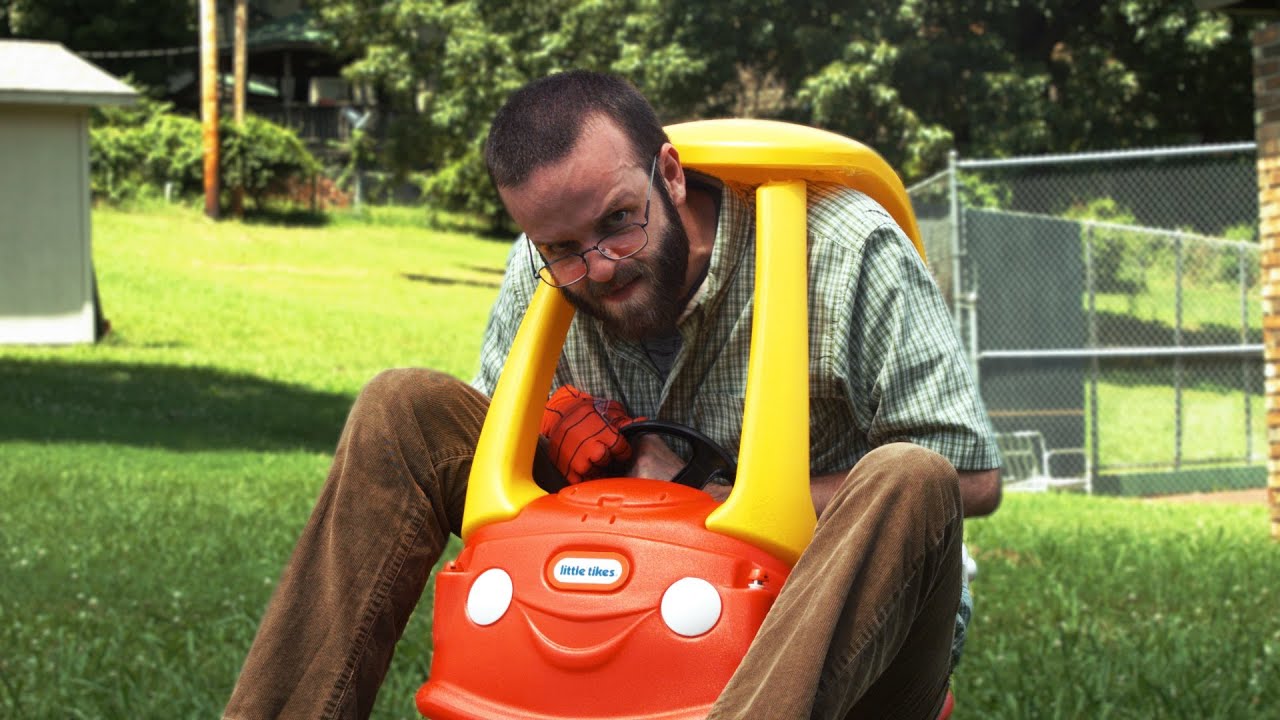The self never could bear any existential difficulty and it never will be able to – that is simply not its department. There are lots of things the self can’t do – not through any fault of its own but because of its actual nature. Freudians and their heirs talk about this thing they call ‘ego strength’, which is a misnomer if ever there was one. The most important thing to understand about the ego or self is that it has absolutely no strength at all. If we are to develop what might be referred to as ‘mental strength’ (or ‘resilience’, as we tend to call it these days) there is one way and one way only in which this can happen and that is by learning not to compulsively identify with the concrete identity that society is always telling us we are. The less we identify ourselves with the concrete identity and its tricks, the more ‘resilience’ we have…
The ego can’t have any strength because it isn’t real, which is rather an obvious statement to be making, but one which it is necessary to make all the same. What we call the ‘ego’ is created – so to speak – by us ‘looking back at ourselves’, so to speak, so as to ‘catch ourselves in the act of doing whatever it is that we are doing’, so to speak. If I’m talking, then I want to ‘catch myself in the act of talking’; if I’m succeeding at some task then I want to ‘see that I’m succeeding’; if I’m enjoying life then I want to ‘know that I’m enjoying it’, and so on and so forth. I’m taking a kind of ‘mental selfie’, in other words, and it is by doing this that I create the impression of the self actually being there as an actual bone fide concrete entity. Unless I take a mental selfie this impression is not going to be created. By the same token, when we find ourselves in a painful or difficult situation, we can’t help ourselves from doing the same thing and capturing a picture of ourselves as ‘failing’ or ‘potentially failing’ or ‘having a bad time’. If we develop the habit or reflex of creating the euphoric ego then at the very same time we are developing the habit of creating the dysphoric ego or self. We get trapped in the former manoeuvre, and we also get trapped in the latter, and the result of this is our ordinary everyday life. Or as we could also say, the result of this is what we are pleased to call ‘the personal narrative’. Therapists often like to say that it is a healthy thing to have a strong personal narrative going on, but it is only good for the self-concept, it is only good for the abstract idea of who we are. The PN doesn’t help who we really are, it denies it!
That we are trapping ourselves in this way is of course news to most of us and it is – moreover – news that we aren’t in any shape or form going to take on board. We are too caught up in the trap of the personal narrative for that. The suggestion that we are creating the illusion of the concrete identity by ‘looking back at ourselves’ – just as Lot’s wife got turned into a pillar of salt by looking back at the City of Sin – is one that is very hard for us to get our heads around, generally speaking. That never occurs to us. And yet there are moments in our lives when we are – however momentarily – ‘free from the self’ and manage to escape the fate of being turned into a pillar of salt, and if we gave the matter some consideration we would see that this is true. Whenever we are engaged wholeheartedly in something creative we ‘lose ourselves’ in this way’, whenever we engage in anything wholeheartedly we lose sight of ourselves – i.e. we ‘forget to take a mental selfie’. Whenever we are totally sincere in something, we could also say, we forget to maintain the illusion of the abstract onlooker, the abstract commentator or evaluator. As Krishnamurti says, although not in these exact words, ‘in the act of perfect attention there is no centre’.
This notion of ‘ego strength’ is therefore completely absurd – how can the ‘abstract onlooker’ (or ‘abstract controller’) have genuine strength? What confuses us is that we think that the ability to control is the same thing as strength – culturally, we worship and adore the ability to control and we think that this is the answer to everything, but this is no more than blindness on our part. Psychologically speaking, controlling is what we do to cover up for the fact that we have no strength; it is our way of compensating, in other words. All the ego can ever do is ‘control’, or ‘try to control’ and this is its compensation for the fact that it has absolutely no strength and never can do. A strong person is a person who doesn’t need to control; a resilient person is a person who doesn’t need to have coping strategies. A resilient person isn’t a person who has lots of skills and strategies and tricks to call upon. This isn’t a hard thing to understand; all we need to do is stop and reflect on the matter for a moment – why would a resilient person have to rely on a whole load of skills and strategies and manoeuvres? Why would a strong person – the person who isn’t afraid of taking risks – need to be controlling the whole time, strategizing the whole time, micromanaging the whole time?
What is called ‘ego strength’ is where someone is very clear about what they want and is very tenacious about getting it. This term is also applicable to a person who is very clear about what they think, what their opinion or beliefs are, and is very confident in asserting themselves in relation to these opinions or beliefs. What we talking about here is aggression however, not strength. Aggression, from a psychological point of view, may be defined as what happens when we act on our thoughts about the world rather than acting from a ‘sensitive’ or ‘vulnerable’ place. Thoughts (or beliefs, or opinions, or judgements) are fundamentally insensitive and they can’t be any other way – there is no such thing as a sensitive belief, a sensitive opinion, or sensitive judgement! When we have a belief or opinion or judgement (all of which are the same thing) and we act in accordance with this position of ours then this might look like strength because it is so prompt and so forceful but it isn’t – it’s simply a reflex, it is simply ‘a thing that fires off all by itself’. If we were to go along with the reflex (or reaction) then this appears to be confidence but this impression is misleading; were not confident, we are just unaware of what’s going on, and were also not interested in ever becoming aware. ‘Ignorance is strength’, as George Orwell puts it, only it is of course not genuine strength.
Ego-strength is a measure of our ability to aggress – the measure of our ability to dictate what will and will not happen in accordance with – of course – our ideas regarding how things should or should not happen. Ego-strength is a measure of how good we are at converting our thoughts about the world into reality, in other words! We could also say that it is the type of ‘strength’ that allows us to carry on ‘believing in ourselves’ since it is by successfully exerting control that we get to believe in ourselves. More precisely, it is through successfully getting things to be the way that we think they ought to be that we get to believe in ourselves in a positive way, in a ‘celebratory’ way. When we aren’t able to exert control and get things to conform to our ideas of how we think they should be then we get to believe in ourselves in a negative or self-recrimination way, as ‘the loser self’ rather than ‘the winner self’. This is still ‘successful controlling’ in a deeper sense however because we are clearly succeeding in believing that things really ought to be the way that we think they should be – if I were to be ‘unable to control’ and yet at the same time ‘not have any belief that the things ought to be the way I want them to be’ then at this point I would no longer be constructing the ego. I would neither be constructing the ‘winner self’ or the ‘loser strength’ and my ego-strength (what is called ego-strength) would be precisely zero.
At this point I’m no longer relying on my ‘power to aggress’ to make things be okay, but that doesn’t mean that they still can’t be ‘okay’, contrary to what the ego might think. The description or definition of ego-strength that we gave earlier looks – on a superficial level – perfectly viable but that is only because [1] we value ‘the ability to control’ as a good thing in itself, irrespective of any other considerations, and – [2] – because we never question our thoughts regarding how things ‘are’ or ‘should be’. So what we have here are the two elements of ‘the perceived need to control’ and the ‘perceived validity of what thought is telling us’ (which is the perceived ability of thought to tell us when everything is okay or not okay). Everything falls down when we doubt (or see through) what thought is telling us, however. Suppose that when thought tells us that ‘everything is okay’ it isn’t actually okay at all? When the thinking mind gives us a target to aim for what this means is that the target isn’t really worth aiming for at all, and so our highly prized ability to aim at the target and follow through on this aim (via our ability to control) suddenly becomes not worth so very much after all. Our valuing of control and our valuing of what thought tells us are one and the same thing, therefore! Everything rests upon our unquestioning acceptance of what thought tells us – ‘ego strength’ is a meaningless proposition if thought itself is unreliable since it is nothing other than a measure of our ability to effectively follow ‘through on’ what thought instructs us to do…
To put this simply, the direction that thought requires us to go in is a direction that leads to what it sees as being ‘a desirable situation’ and our ability to follow through on this equals ‘ego-strength’; what seems to thought to be the correct direction to go in is only ‘correct’ according to it however – is not ‘correct’ in any other, wider sense. It is correct only in the sense that it corroborates and stabilises the set of assumptions that thought is based on and so inasmuch as these assumptions are valid then so too is our controlling, so too is ‘the direction we are heading in’ or ‘trying to head in’. The assumptions in question never are valid however – they only feel valid because of the way we unreflectively act on them. Similarly, the self or ego only seems ‘valid’ when we act on it as ‘an unquestionable basis’ – and the direction which therefore seems to us to be the correct one is the direction of ‘firming up’ this abstract sense of self and making it seem more real, more solid, even though it isn’t. This is also the direction of increased rigidity, increased fragility, increased reactivity and so – very plainly – ego-strength is the complete opposite of what we like to call ‘resilience’. Reification of the self-concept isn’t the same thing as ‘increased resilience’ because the self – as we have said – does not have the capacity to bear the slightest difficulty or challenge.
The other direction to go in – the direction which the thinking mind doesn’t like, doesn’t approve of, doesn’t see as leading to a good place, is ‘the movement out of equilibrium‘, ‘the movement away from the known’. This is the ‘non-conservative’ movement in that nothing is being conserved in terms of what ‘we used to know’ or ‘what we used to believe in’ or ‘what we used to be’! The movement away from the known hasn’t – needless to say – anything to do with confirming or corroborating our assumptions and for this reason it is total anathema to the thinking mind. We like to meet life’s psychological or emotional difficulties with techniques, skills, manoeuvres, tried-and-trusted formulae. We – quite laughably – see this as being ‘the scientific way to go about things’. We are trying to bring everything back within the Realm of the Known, in other words. The reason this is laughable is because it is our insistence on living life on the basis of the known (and with always bringing things back to the known) that has brought about our dilemma in the first place. It is our unacknowledged cowardice that has brought about dilemma which we find ourselves in and our ‘cowardice’ lies precisely in the fact that we won’t allow ourselves to see that life itself is ‘a journey into the unknown’. When we refuse ‘the call to adventure’ – as Joseph Campbell puts it – then the negative adventure is what we get instead, and the negative adventure is neurotic suffering, i.e. it is the situation where we are fighting against ‘existential risk’ and ‘the radical unknown’ as if ‘existential risk’ or ‘the radical unknown’ were a bad thing…






